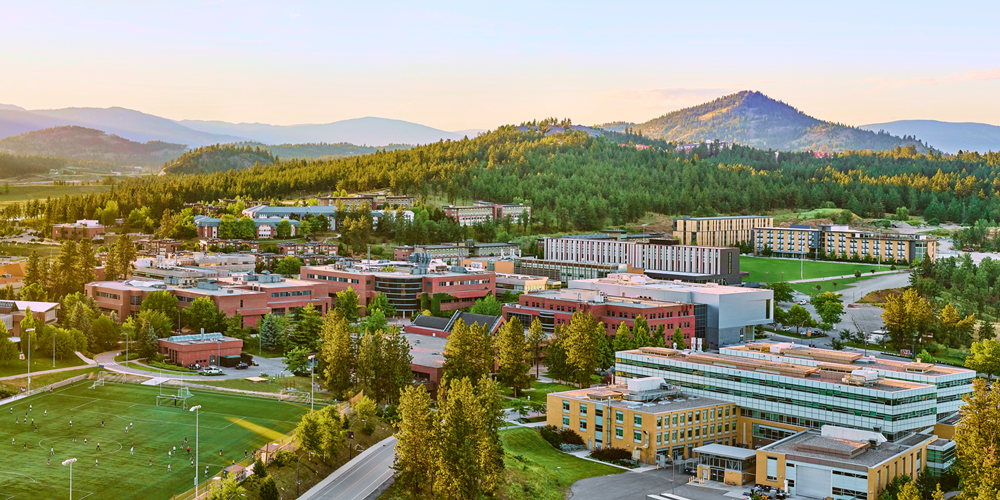Program Overview
The goal of the EFP is to live well in a new place. You will develop your English language skills, critical thinking ability, general knowledge, learning strategies, and intercultural competence. Student wellbeing, community engagement, and local First Peoples knowledge are also important parts of the program. You will experience an active educational environment, with instructors using a variety of teaching methods. You will also enjoy learning activities that incorporate a range of individual tasks, peer collaboration, and group work. The program creates a safe and cooperative learning environment that encourages questions and helps you find answers.
Curriculum
Depending on your English language proficiency scores, you’ll benefit from either one or two terms in the EFP. Students studying one term in the program will complete EAP 104. Students studying two terms in the program will complete EAP 103 and EAP 104.
Each term consists of programming designed to maximize your English language skills and foster academic success. A typical week includes reading, writing, listening, and speaking classes, campus, community, and culture lessons, language labs and field trips, and tutorial support. You can also take one or two additional undergraduate courses to get a head start on your degree program. EAP courses are worth three credits each, and those credits count towards your undergraduate degree as electives.
Students entering most undergraduate programs through the EFP are able to complete their undergraduate degrees within four years, including some summer terms of study. An academic advisor will be happy to help you to determine the timeline and requirements for your degree.
We are here to support you and keep your university studies on track.
Admission, Fees, Applying
You could soon be studying at one of the world’s top universities. Be sure to review the content below to prepare for attending UBC Okanagan.
Admission Requirements
The EFP welcomes students who still need to achieve UBC’s minimum English Language Admission Standard (ELAS).
If you apply to study in an undergraduate program* on UBC’s Okanagan campus, and you haven’t met the ELAS, you’ll be evaluated to see if the EFP is the best option for you.
You also have the option of studying as a non-degree student. Please see the UBC Okanagan Academic Calendar for the minimum English language proficiency test scores to enter the EFP.
*Eligible undergraduate programs include Applied Science, Arts, Fine Arts, Health and Exercise Sciences, Management, Media Studies, Science, and Sustainability.
Tuition and Program Fees
International Student Tuition and Program Fees*
EAP 103 or EAP 104 (3 credits): $4,681.29
EFP Program Fee: $6160.50
Domestic Student Tuition and Program Fees*
EAP 103 or EAP 104 (3 credits): $584.34
EFP Program Fee: $6160.50
*Amounts are based on 2024/2025 tuition and program fees for students in an Arts program. Tuition fees may vary, depending on your program of study. Applicable student fees and tuition for one or two additional courses are not included.
Please refer to the UBC Okanagan Calendar for detailed information about tuition, program, and student fees.
In case of discrepancy, the UBC Okanagan Calendar is held to be correct.




